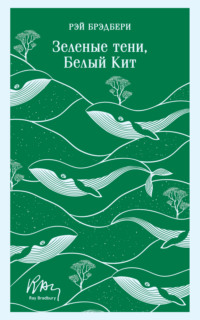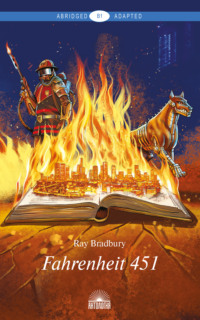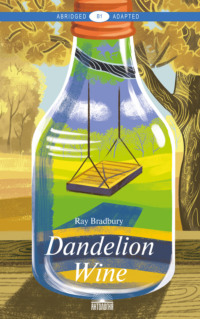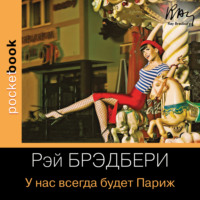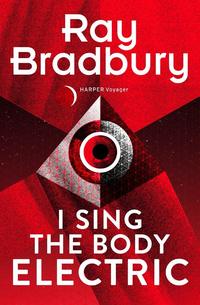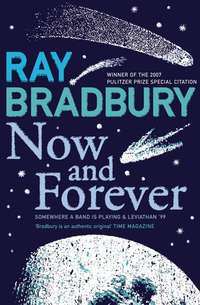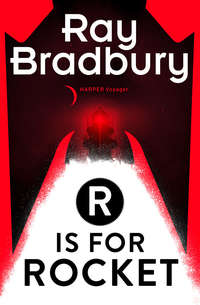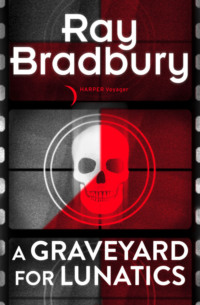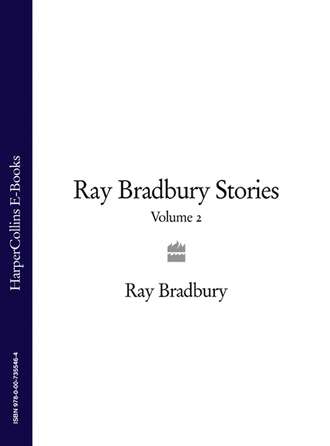
Полная версия
Ray Bradbury Stories Volume 2
And before I could prevent, he gave the brass machine a terrific slap with his hand and then a blow and another blow and another, with both fists, cursing. Then he grabbed the periscope as if it were the neck of a spoiled child and throttled and shook it.
I cannot say what I heard in that instant. Perhaps real sounds, perhaps imagined temblors, like a glacier cracking in the spring, or icicles in midnight. Perhaps it was a sound like a great kite breaking its skeleton in the wind and collapsing in folds of tissue. Maybe I thought I heard a vast breath insucked, a cloud dissolving up inside itself. Or did I sense clock machineries spun so wildly they smoked off their foundations and fell like brass snowflakes?
I put my eye to the periscope.
I looked in upon—
Nothing.
It was just a brass tube with some crystal lenses and a view of an empty couch.
No more.
I seized the viewpiece and tried to screw it into some new focus on a far place and some dream bacteria that might fibrillate across an unimaginable horizon.
But the couch remained only a couch, and the wall beyond looked back at me with its great blank face.
Von Seyfertitz leaned forward and a tear ran off the tip of his nose to fall on one rusted fist.
‘Are they dead?’ he whispered.
‘Gone.’
‘Good, they deserved to die. Now I can return to some kind of normal, sane world.’
And with each word his voice fell deeper within his throat, his chest, his soul, until it, like the vaporous haunts within the peri-kaleidoscope, melted into silence.
He clenched his fists together in a fierce clasp of prayer, like one who beseeches God to deliver him from plagues. And whether he was once again praying for my death, eyes shut, or whether he simply wished me gone with the visions within the brass device, I could not say.
I only knew that my gossip had done a terrible and irrevocable thing. Me and my wild enthusiasm for a psychological future and the fame of this incredible captain from beneath Nemo’s tidal seas.
‘Gone,’ murmured Gustav Von Seyfertitz, Baron Woldstein, whispered for the last time. ‘Gone.’
That was almost the end.
I went around a month later. The landlord reluctantly let me look over the premises, mostly because I hinted that I might be renting.
We stood in the middle of the empty room where I could see the dent marks where the couch had once stood.
I looked up at the ceiling. It was empty.
‘What’s wrong?’ said the landlord. ‘Didn’t they fix it so you can’t see? Damn fool Baron made a damn big hole up into the office above. Rented that, too, but never used it for anything I knew of. There was just that big damn hole he left when he went away.’
I sighed with relief.
‘Nothing left upstairs?’
‘Nothing.’
I looked up at the perfectly blank ceiling.
‘Nice job of repair,’ I said.
‘Thank God,’ said the landlord.
What, I often wonder, ever happened to Gustav Von Seyfertitz? Did he move to Vienna, to take up residence, perhaps, in or near dear Sigmund’s very own address? Does he live in Rio, aerating fellow Unterderseaboat Captains who can’t sleep for seasickness, roiling on their waterbeds under the shadow of the Andes Cross? Or is he in South Pasadena, within striking distance of the fruit larder nut farms disguised as film studios?
I cannot guess.
All I know is that some nights in the year, oh, once or twice, in a deep sleep I hear this terrible shout, his cry,
‘Dive! Dive! Dive!’
And wake to find myself, sweating, far under my bed.
Another Fine Mess
The sounds began in the middle of summer in the middle of the night.
Bella Winters sat up in bed about three A.M. and listened and then lay back down. Ten minutes later she heard the sounds again, out in the night, down the hill.
Bella Winters lived in a first-floor apartment on top of Vendome Heights, near Effie Street in Los Angeles, and had lived there now for only a few days, so it was all new to her, this old house on an old street with an old staircase, made of concrete, climbing steeply straight up from the lowlands below, one hundred and twenty steps, count them. And right now …
‘Someone’s on the steps,’ said Bella to herself.
‘What?’ said her husband, Sam, in his sleep.
‘There are some men out on the steps,’ said Bella. ‘Talking, yelling, not fighting, but almost. I heard them last night, too, and the night before, but …’
‘What?’ Sam muttered.
‘Shh, go to sleep. I’ll look.’
She got out of bed in the dark and went to the window, and yes, two men were indeed talking out there, grunting, groaning, now loud, now soft. And there was another noise, a kind of bumping, sliding, thumping, like a huge object being carted up the hill.
‘No one could be moving in at this hour of the night, could they?’ asked Bella of the darkness, the window, and herself.
‘No,’ murmured Sam.
‘It sounds like …’
‘Like what?’ asked Sam, fully awake now.
‘Like two men moving—’
‘Moving what, for God’s sake?’
‘Moving a piano. Up those steps.’
‘At three in the morning?’
‘A piano and two men. Just listen.’
The husband sat up, blinking, alert.
Far off, in the middle of the hill, there was a kind of harping strum, the noise a piano makes when suddenly thumped and its harp strings hum.
‘There, did you hear?’
‘Jesus, you’re right. But why would anyone steal—’
‘They’re not stealing, they’re delivering.’
‘A piano?’
‘I didn’t make the rules, Sam. Go out and ask. No, don’t; I will.’
And she wrapped herself in her robe and was out the door and on the sidewalk.
‘Bella,’ Sam whispered fiercely behind the porch screen.
‘Crazy.’
‘So what can happen at night to a woman fifty-five, fat, and ugly?’ she wondered.
Sam did not answer.
She moved quietly to the rim of the hill. Somewhere down there she could hear the two men wrestling with a huge object. The piano on occasion gave a strumming hum and fell silent. Occasionally one of the men yelled or gave orders.
‘The voices,’ said Bella. ‘I know them from somewhere,’ she whispered and moved in utter dark on stairs that were only a long pale ribbon going down, as a voice echoed:
‘Here’s another fine mess you’ve got us in.’
Bella froze. Where have I heard that voice, she wondered, a million times!
‘Hello,’ she called.
She moved, counting the steps, and stopped.
And there was no one there.
Suddenly she was very cold. There was nowhere for the strangers to have gone to. The hill was steep and a long way down and a long way up, and they had been burdened with an upright piano, hadn’t they?
How come I know upright? she thought. I only heard. But – yes, upright! Not only that, but inside a box!
She turned slowly and as she went back up the steps, one by one, slowly, slowly, the voices began to sound again, below, as if, disturbed, they had waited for her to go away.
‘What are you doing?’ demanded one voice.
‘I was just—’ said the other.
‘Give me that!’ cried the first voice.
That other voice, thought Bella, I know that, too. And I know what’s going to be said next!
‘Now,’ said the echo far down the hill in the night, ‘just don’t stand there, help me!’
‘Yes!’ Bella closed her eyes and swallowed hard and half fell to sit on the steps, getting her breath back as black-and-white pictures flashed in her head. Suddenly it was 1929 and she was very small, in a theater with dark and light pictures looming above the first row where she sat, transfixed, and then laughing, and then transfixed and laughing again.
She opened her eyes. The two voices were still down there, a faint wrestle and echo in the night, despairing and thumping each other with their hard derby hats.
Zelda, thought Bella Winters. I’ll call Zelda. She knows everything. She’ll tell me what this is. Zelda, yes!
Inside, she dialed Z and E and L and D and A before she saw what she had done and started over. The phone rang a long while until Zelda’s voice, angry with sleep, spoke half-way across L.A.
‘Zelda, this is Bella!’
‘Sam just died?’
‘No, no, I’m sorry—’
‘You’re sorry?’
‘Zelda, I know you’re going to think I’m crazy, but …’
‘Go ahead, be crazy.’
‘Zelda, in the old days when they made films around L.A., they used lots of places, right? Like Venice, Ocean Park …’
‘Chaplin did, Langdon did, Harold Lloyd, sure.’
‘Laurel and Hardy?’
‘What?’
‘Laurel and Hardy, did they use lots of locations?’
‘Palms, they used Palms lots, Culver City Main Street, Effie Street.’
‘Effie Street!’
‘Don’t yell, Bella.’
‘Did you say Effie Street?’
‘Sure, and God, it’s three in the morning!’
‘Right at the top of Effie Street!?’
‘Hey, yeah, the stairs. Everyone knows them. That’s where the music box chased Hardy downhill and ran over him.’
‘Sure, Zelda, sure! Oh, God, Zelda, if you could see, hear, what I hear!’
Zelda was suddenly wide awake on the line. ‘What’s going on?You serious?’
‘Oh, God, yes. On the steps just now, and last night and the night before maybe, I heard, I hear – two men hauling a – a piano up the hill.’
‘Someone’s pulling your leg!’
‘No, no, they’re there. I go out and there’s nothing. But the steps are haunted, Zelda! One voice says: “Here’s another fine mess you’ve got us in.” You got to hear that man’s voice!’
‘You’re drunk and doing this because you know I’m a nut for them.’
‘No, no. Come, Zelda. Listen. Tell!’
Maybe half an hour later, Bella heard the old tin lizzie rattle up the alley behind the apartments. It was a car, Zelda in her joy at visiting silent-movie theaters, had bought to lug herself around in while she wrote about the past, always the past, and steaming into Cecil B. DeMille’s old place or circling Harold Lloyd’s nation-state, or cranking and banging around the Universal backlot, paying her respects to the Phantom’s opera stage, or sitting on Ma and Pa Kettle’s porch chewing a sandwich lunch. That was Zelda, who once wrote in a silent country in a silent time for Silver Screen.
Zelda lumbered across the front porch, a huge body with legs as big as the Bernini columns in front of St. Peter’s in Rome, and a face like a harvest moon.
On that round face now was suspicion, cynicism, skepticism, in equal pie-parts. But when she saw Bella’s pale stare she cried:
‘Bella!’
‘You see I’m not lying!’ said Bella.
‘I see!’
‘Keep your voice down, Zelda. Oh, it’s scary and strange, terrible and nice. So come on.’
And the two women edged along the walk to the rim of the old hill near the old steps in old Hollywood, and suddenly as they moved they felt time take a half turn around them and it was another year, because nothing had changed, all the buildings were the way they were in 1928 and the hills beyond like they were in 1926 and the steps, just the way they were when the cement was poured in 1921.
‘Listen, Zelda. There!’
And Zelda listened and at first there was only a creaking of wheels down in the dark, like crickets, and then a moan of wood and a hum of piano strings, and then one voice lamenting about this job, and the other voice claiming he had nothing to do with it, and then the thumps as two derby hats fell, and an exasperated voice announced:
‘Here’s another fine mess you’ve got us in.’
Zelda, stunned, almost toppled off the hill. She held tight to Bella’s arm as tears brimmed in her eyes.
‘It’s a trick. Someone’s got a tape recorder or—’
‘No, I checked. Nothing but the steps, Zelda, the steps!’
Tears rolled down Zelda’s plump cheeks.
‘Oh, God, that is his voice! I’m the expert, I’m the mad fanatic, Bella. That’s Ollie. And that other voice, Stan! And you’re not nuts after all!’
The voices below rose and fell and one cried: ‘Why don’t you do something to help me?’
Zelda moaned. ‘Oh, God, it’s so beautiful.’
‘What does it mean?’ asked Bella. ‘Why are they here? Are they really ghosts, and why would ghosts climb this hill every night, pushing that music box, night after night, tell me, Zelda, why?’
Zelda peered down the hill and shut her eyes for a moment to think. ‘Why do any ghosts go anywhere? Retribution? Revenge? No, not those two. Love maybe’s the reason, lost loves or something. Yes?’
Bella let her heart pound once or twice and then said, ‘Maybe nobody told them.’
‘Told them what?’
‘Or maybe they were told a lot but still didn’t believe, because maybe in their old years things got bad, I mean they were sick, and sometimes when you’re sick you forget.’
‘Forget what?’
‘How much we loved them.’
‘They knew!’
‘Did they? Sure, we told each other, but maybe not enough of us ever wrote or waved when they passed and just yelled “Love!” you think?’
‘Hell, Bella, they’re on TV every night!’
‘Yeah, but that don’t count. Has anyone, since they left us, come here to these steps and said? Maybe those voices down there, ghosts or whatever, have been here every night for years, pushing that music box, and nobody thought, or tried, to just whisper or yell all the love we had all the years. Why not?’
‘Why not?’ Zelda stared down into the long darkness where perhaps shadows moved and maybe a piano lurched clumsily among the shadows. ‘You’re right.’
‘If I’m right,’ said Bella, ‘and you say so, there’s only one thing to do—’
‘You mean you and me?’
‘Who else? Quiet. Come on.’
They moved down a step. In the same instant lights came on around them, in a window here, another there. A screen door opened somewhere and angry words shot out into the night:
‘Hey, what’s going on?’
‘Pipe down!’
‘You know what time it is?’
‘My God,’ Bella whispered, ‘everyone else hears now!’
‘No, no.’ Zelda looked around wildly. ‘They’ll spoil everything!’
‘I’m calling the cops!’ A window slammed.
‘God,’ said Bella, ‘if the cops come—’
‘What?’
‘It’ll be all wrong. If anyone’s going to tell them to take it easy, pipe down, it’s gotta be us. We care, don’t we?’
‘God, yes, but—’
‘No buts. Grab on. Here we go.’
The two voices murmured below and the piano tuned itself with hiccups of sound as they edged down another step and another, their mouths dry, hearts hammering, and the night so dark they could see only the faint streetlight at the stair bottom, the single street illumination so far away it was sad being there all by itself, waiting for shadows to move.
More windows slammed up, more screen doors opened. At any moment there would be an avalanche of protest, incredible outcries, perhaps shots fired, and all this gone forever.
Thinking this, the women trembled and held tight, as if to pummel each other to speak against the rage.
‘Say something, Zelda, quick.’
‘What?’
‘Anything! They’ll get hurt if we don’t—’
‘They?’
‘You know what I mean. Save them.’
‘Okay. Jesus!’ Zelda froze, clamped her eyes shut to find the words, then opened her eyes and said, ‘Hello.’
‘Louder.’
‘Hello,’ Zelda called softly, then loudly.
Shapes rustled in the dark below. One of the voices rose while the other fell and the piano strummed its hidden harp strings.
‘Don’t be afraid,’ Zelda called.
‘That’s good. Go on.’
‘Don’t be afraid,’ Zelda called, braver now. ‘Don’t listen to those others yelling. We won’t hurt you. It’s just us. I’m Zelda, you wouldn’t remember, and this here is Bella, and we’ve known you forever, or since we were kids, and we love you. It’s late, but we thought you should know. We’ve loved you ever since you were in the desert or on that boat with ghosts or trying to sell Christmas trees door-to-door or in that traffic where you tore the headlights off cars, and we still love you, right, Bella?’
The night below was darkness, waiting.
Zelda punched Bella’s arm.
‘Yes!’ Bella cried, ‘what she said. We love you.’
‘We can’t think of anything else to say.’
‘But it’s enough, yes?’ Bella leaned forward anxiously. ‘It’s enough?’
A night wind stirred the leaves and grass around the stairs and the shadows below that had stopped moving with the music box suspended between them as they looked up and up at the two women, who suddenly began to cry. First tears fell from Bella’s cheeks, and when Zelda sensed them, she let fall her own.
‘So now,’ said Zelda, amazed that she could form words but managed to speak anyway, ‘we want you to know, you don’t have to come back anymore. You don’t have to climb the hill every night, waiting. For what we said just now is it, isn’t it? I mean you wanted to hear it here on this hill, with those steps, and that piano, yes, that’s the whole thing, it had to be that, didn’t it? So now here we are and there you are and it’s said. So rest, dear friends.’
‘Oh, there, Ollie,’ added Bella in a sad, sad whisper. ‘Oh, Stan, Stanley.’
The piano, hidden in the dark, softly hummed its wires and creaked its ancient wood.
And then the most incredible thing happened. There was a series of shouts and then a huge banging crash as the music box, in the dark, rocketed down the hill, skittering on the steps, playing chords where it hit, swerving, rushing, and ahead of it, running, the two shapes pursued by the musical beast, yelling, tripping, shouting, warning the Fates, crying out to the gods, down and down, forty, sixty, eighty, one hundred steps.
And half down the steps, hearing, feeling, shouting, crying themselves, and now laughing and holding to each other, the two women alone in the night wildly clutching, grasping, trying to see, almost sure that they did see, the three things ricocheting off and away, the two shadows rushing, one fat, one thin, and the piano blundering after, discordant and mindless, until they reached the street, where, instantly, the one overhead streetlamp died as if struck, and the shadows floundered on, pursued by the musical beast.
And the two women, abandoned, looked down, exhausted with laughing until they wept and weeping until they laughed, until suddenly Zelda got a terrible look on her face as if shot.
‘My God!’ she shouted in panic, reaching out. ‘Wait. We didn’t mean, we don’t want – don’t go forever! Sure, go, so the neighbors here sleep. But once a year, you hear? Once a year, one night a year from tonight, and every year after that, come back. It shouldn’t bother anyone so much. But we got to tell you all over again, huh? Come back and bring the box with you, and we’ll be here waiting, won’t we, Bella?’
‘Waiting, yes.’
There was a long silence from the steps leading down into an old black-and-white, silent Los Angeles.
‘You think they heard?’
They listened.
And from somewhere far off and down, there was the faintest explosion like the engine of an old jalopy knocking itself to life, and then the merest whisper of a lunatic music from a dark theater when they were very young. It faded.
After a long while they climbed back up the steps, dabbing at their eyes with wet Kleenex. Then they turned for a final time to stare down into the night.
‘You know something?’ said Zelda. ‘I think they heard.’
The Dwarf
Aimee watched the sky, quietly.
Tonight was one of those motionless hot summer nights. The concrete pier empty, the strung red, white, yellow bulbs burning like insects in the air above the wooden emptiness. The managers of the various carnival pitches stood, like melting wax dummies, eyes staring blindly, not talking, all down the line.
Two customers had passed through an hour before. Those two lonely people were now in the roller coaster, screaming murderously as it plummeted down the blazing night, around one emptiness after another.
Aimee moved slowly across the strand, a few worn wooden hoopla rings sticking to her wet hands. She stopped behind the ticket booth that fronted the MIRROR MAZE. She saw herself grossly misrepresented in three rippled mirrors outside the Maze. A thousand tired replicas of herself dissolved in the corridor beyond, hot images among so much clear coolness.
She stepped inside the ticket booth and stood looking a long while at Ralph Banghart’s thin neck. He clenched an unlit cigar between his long uneven yellow teeth as he laid out a battered game of solitaire on the ticket shelf.
When the roller coaster wailed and fell in its terrible avalanche again, she was reminded to speak.
‘What kind of people go up in roller coasters?’
Ralph Banghart worked his cigar a full thirty seconds. ‘People wanna die. That rollie coaster’s the handiest thing to dying there is.’ He sat listening to the faint sound of rifle shots from the shooting gallery. ‘This whole damn carny business’s crazy. For instance, that dwarf. You seen him? Every night, pays his dime, runs in the Mirror Maze all the way back through to Screwy Louie’s Room. You should see this little runt head back there. My God!’
‘Oh, yes,’ said Aimee, remembering. ‘I always wonder what it’s like to be a dwarf. I always feel sorry when I see him.’
‘I could play him like an accordion.’
‘Don’t say that!’
‘My Lord.’ Ralph patted her thigh with a free hand. ‘The way you carry on about guys you never even met.’ He shook his head and chuckled. ‘Him and his secret. Only he don’t know I know, see? Boy howdy!’
‘It’s a hot night.’ She twitched the large wooden hoops nervously on her damp fingers.
‘Don’t change the subject. He’ll be here, rain or shine.’
Aimee shifted her weight.
Ralph seized her elbow. ‘Hey! You ain’t mad? You wanna see that dwarf, don’t you? Sh!’ Ralph turned. ‘Here he comes now!’
The Dwarf’s hand, hairy and dark, appeared all by itself reaching up into the booth window with a silver dime. An invisible person called, ‘One!’ in a high, child’s voice.
Involuntarily, Aimee bent forward.
The Dwarf looked up at her, resembling nothing more than a dark-eyed, dark-haired, ugly man who has been locked in a winepress, squeezed and wadded down and down, fold on fold, agony on agony, until a bleached, outraged mass is left, the face bloated shapelessly, a face you know must stare wide-eyed and awake at two and three and four o’clock in the morning, lying flat in bed, only the body asleep.
Ralph tore a yellow ticket in half. ‘One!’
The Dwarf, as if frightened by an approaching storm, pulled his black coat-lapels tightly about his throat and waddled swiftly. A moment later, ten thousand lost and wandering dwarfs wriggled between the mirror flats, like frantic dark beetles, and vanished.
‘Quick!’
Ralph squeezed Aimee along a dark passage behind the mirrors. She felt him pat her all the way back through the tunnel to a thin partition with a peekhole.
‘This is rich,’ he chuckled. ‘Go on – look.’
Aimee hesitated, then put her face to the partition.
‘You see him?’ Ralph whispered.
Aimee felt her heart beating. A full minute passed.


